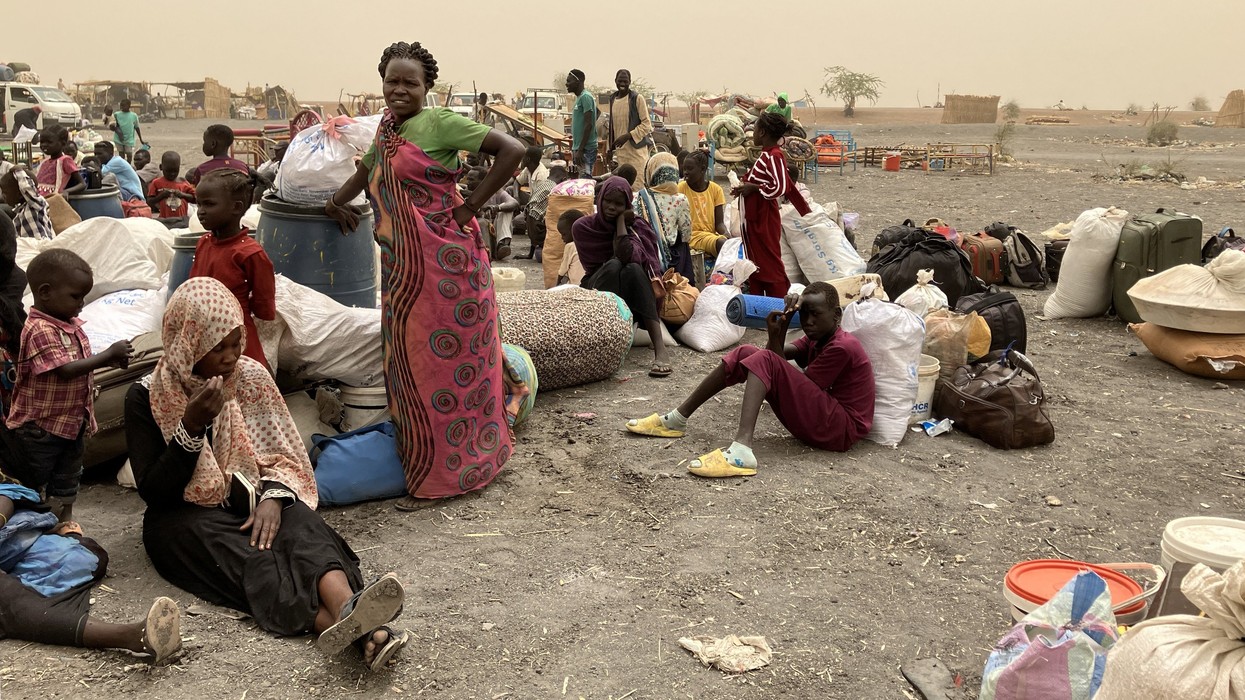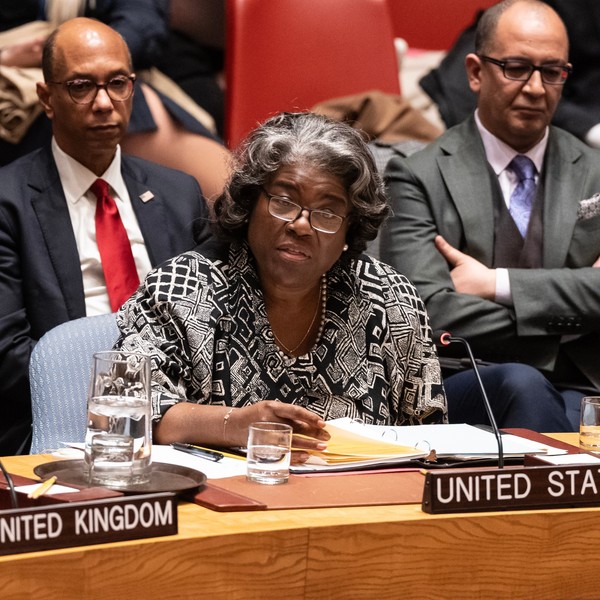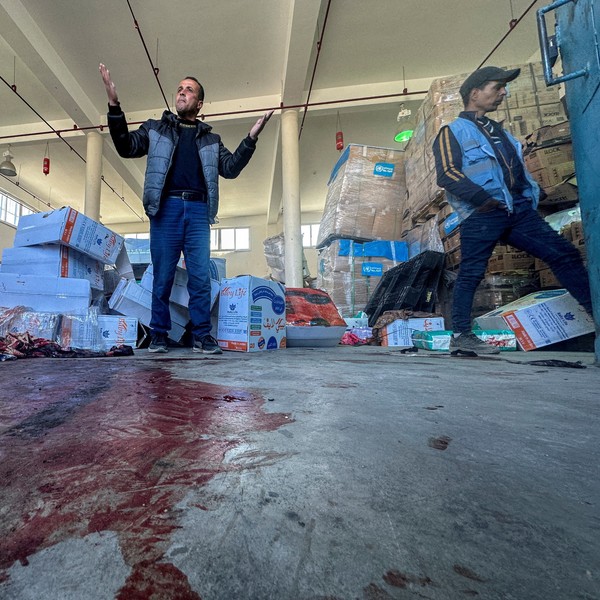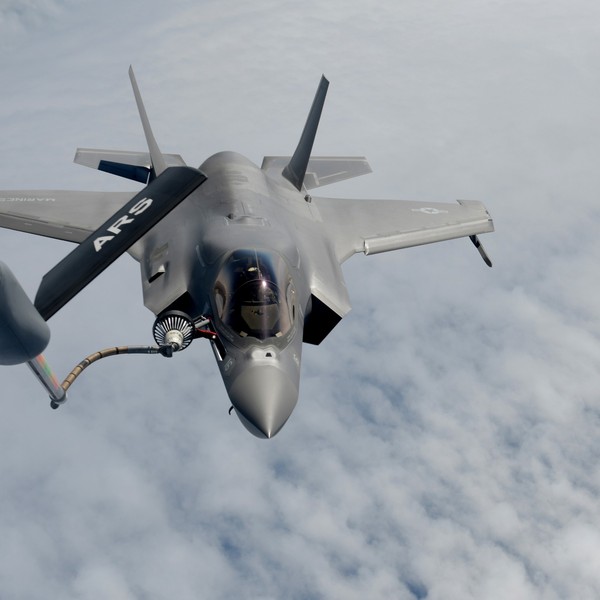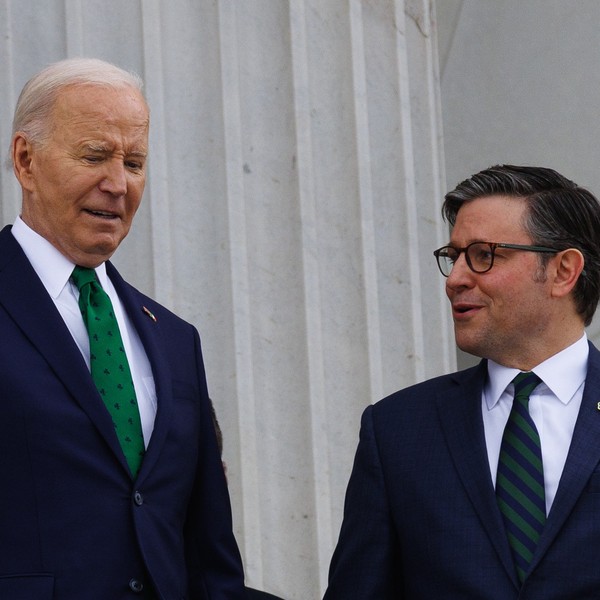The COVID-19 pandemic may have put a brief pause to the recent wave of popular movements challenging decades of inept and unaccountable rule across the greater Middle East, but when the protests return they will likely be met by an increasingly emboldened counter movement: the destabilizing — and sometimes coordinated — external influence campaigns being spearheaded by Saudi Arabia, the United Arab Emirates, and Egypt.
Having successfully weathered the Arab Spring nearly a decade ago, these three countries have now doubled-down on a counter-revolutionary strategy not limited just to aggressively snuffing out any flicker of dissent at home, but also shaping conditions elsewhere. As regional governments increasingly use the coronavirus to curb personal freedoms, Saudi Arabia, the UAE, and Egypt are likely to encourage and support such behaviors after the current crisis ends, especially if their recent practices are anything to go by.
In places like Tunisia, Algeria, Sudan, and Libya, the three countries have sought to stymie citizen uprisings, meddle in elections, arm allies, strengthen military rule, and wage disinformation campaigns. By cultivating conditions and supporting rulers matching a regional vision where transparency, democracy, and good governance matter little, their goal is to prevent the emergence of multiple civilian-led and democratically-minded governments for fear of what it may portend for their own rule.
As far back as 2017, Egypt has facilitated the transport of Sudanese militias to Libya and continues to transfer arms to Libyan warlord Khalifa Haftar, who is also backed by Saudi Arabia and is battling the U.N.-backed Government of National Accord in Tripoli. Likewise, the UAE has used Sudanese airspace and ports to transport hundreds of mercenaries in support of Haftar and to do their dirty work in Yemen’s ongoing war.
In Sudan, Saudi Arabia, the UAE, and Egypt tried in earnest to stem the introduction of political reforms by conspiring to foment a counter-revolution when Omar Bashir was ousted from office last year after three decades in power. The UAE and Saudi Arabia pledged $3 billion to the Sudanese Transitional Military Council as it was violently repressing protesters. While the aid could provide economic relief to the country and assist with important medical campaigns, it also was a likely attempt to nudge the direction of Sudan’s post-Bashir transition away from civilian rule and the likelihood of enacting institutional and structural change. Protesters rightly decried the aid as an effort by the two Gulf states to exert control over the country and demanded that the government return it. Recent reports indicate the pledge of aid has now stopped after a transfer of $1 billion.
Sudanese protesters were not alone in their skepticism of overtures from these Gulf countries. Algerian pro-democracy groups are so wary of Saudi and Emirati designs on their country that they have pushed tokick out any businesses affiliated with the two. Their concern appears to be warranted as the first official state visit by newly-elected president Abdelmadjid Tebboune was to Saudi Arabia, a country that maintains close to $3 billion in investments in Algeria and could see it rise to $10 billion in the next decade. In Tunisia, the two countries once again tried to thwart the transition to democracy by backing elements of the pre-Arab Spring regime, enlisting protesters to further their ambitions, and waging disinformation campaigns. Despite such efforts, the results of this interference have so far yielded little fruit: Sudan’s Transitional Military Council ceded rule to the joint military-civilian Sovereignty Council and the first two world leaders to visit the new Tunisian president were those of Qatar and Turkey, raising the prospect that these countries and not their Gulf rivals would lead the way in Tunisian investment.
But these impasses are unlikely to deter the ongoing Emirati, Saudi, and Egyptian efforts to ensure democracy does not take root across the region. All three countries continue to utilize social media and unleash their armies of electronic flies to undermine democratic movements, spread disinformation, smear opponents, and sow discord. Recently, Twitter suspended multiple accounts from Saudi Arabia, the UAE, and Egypt that sought to spread state propaganda, denigrate regional enemies, and target the Government of National Accord in Libya. Last summer, Facebook removed multiple inauthentic accounts based in Saudi Arabia, the UAE, and Egypt that sought to amplify the regional successes of de-facto Saudi ruler Mohammed bin Salman and the UAE, raise the profile of Haftar in Libya, and call into question popular movements in places like Sudan.
Since the beginning of Algeria’s popular uprising in 2019, accounts based in Saudi Arabia and the UAE have flooded Facebook and Twitter with pro-regime messages, often meant to spread fear and discredit the grassroots Hirak movement. In the lead-up to the December 2019 presidential elections, which many Algerians saw as an attempt to provide a democratic sheen to members of the old order and sought to boycott, troll farms and bots in Saudi Arabia, the UAE, and Egypt initiated a get-out-the-vote campaign. Such manipulative and aggressive cyber tactics are not restricted to large scale efforts, but have been deployed to hack, surveil, and smear critics, journalists, and activists for questioning Saudi Arabia’s domestic or international agenda. These efforts to neutralize such critics know no bounds, as evidenced by the murder of journalist Jamal Khashoggi in the Saudi consulate in Istanbul or the arrest, torture, and enforced disappearance of Yemenis protesting the activities of Saudi Arabia in their country.
This opposition to democracy abroad and the desire to implement a parochial vision to preserve their status as ruling elites should come as little surprise for three countries that are unrelenting in silencing critics and pursuing varying methods of social and political repression within their own borders. From large-scale actions, like the mass detentions of protesters and the jailing of human rights advocates, to cracking down on dissent within their own families — including through kidnapping — they pursue an unflinching obedience to a tyrannical regional vision. Should it go unchecked after the coronavirus crisis subsides, this vision will continue to spread and seek to debilitate democratic movements across the Middle East wherever it can.



